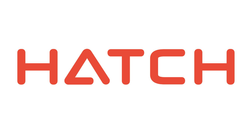Hatch Goba is a key player in the roads and transportation sector
Transportation has a unique capability to be an enabler of economic growth, and also to shape the development of cities, says Jarendra Reddy, regional director: roads and transportation (AEM) at Hatch Goba.
“The biggest opportunity within the local and African context is to use transport infrastructure to bring about transformative improvements. At Hatch Goba, we value the things that matter to society and to our clients.
“Within this context, transportation has always been an enabler of economic growth by connecting people to opportunity. If done well, this ultimately results in an improved quality of life. As long as this is the case, and we believe that we can continue to make a meaningful contribution in this sector, roads and transportation will continue to be an important focus for us,” Reddy comments.
Three sectors
Hatch Goba operates in three main business sectors, namely infrastructure, mining and metals and energy. Roads and Transportation is a business unit within the broader infrastructure division, and focuses on public transport, major roads and highways, urban development, freight and logistics and integrated transport planning.
Within each of these market segments, Hatch Goba offers advisory, design, operations, technology, marketing and communications and implementation services. It embraces a wide range of disciplines, including economics, engineering, environmental science, data analytics and modelling and asset management.
“Our capabilities are geared towards better understanding our clients’ challenges, and generating ideas and solutions that have a meaningful impact on their businesses or mandates,” Reddy explains. “We take a very diverse skills set and integrate these in a way that allows for total solutions that respond to the root causes of problems.”
Cutting-edge
By using cutting-edge know-how and technology, Hatch Goba is also able to formulate solutions at different scales. “At one end of the spectrum, we can support clients in making fairly large decisions: should we implement Bus Rapid Transit or Light Rail Transit?” Reddy points out.
“At the other end of the spectrum, we can focus on the micro issues, including the seemingly unimportant detail that makes for either a great or poor user experience, such as interchange, junction and signal design.”
Looking at public transport in particular, Reddy highlights that this encompasses diverse systems such as right-of-way infrastructure, signalling and control systems, fare and revenue management, rolling stock and traveller information systems.
Technology trends
“From a global perspective, lightweight vehicles with low energy consumption and emissions per passenger is an obvious trend. Traveller information systems are moving toward mobile platforms, taking advantage of existing online mapping products, as opposed to setting up bespoke standalone systems,” Reddy elaborates.
“Fare and revenue collection systems are about to experience a significant disruption, with mobile devices potentially being used as a payment medium. However, within the developing world context, the democratisation of such technologies is crucial for these trends to take place.”
As an example, Hatch Goba has undertaken the preliminary and detailed operational design for Phase 1 of the Go!Durban transit system for eThekwini Municipality. “Implementing public transportation systems is about appreciating the current circumstances and requirements, while having the foresight to anticipate future needs,” Reddy notes.
System scalability
“We focused a lot on system scalability and giving due consideration to the interrelationship between the infrastructure, operations and business aspects. We also developed bespoke analytical tools that allowed us to rapidly assess a number of ‘what if’ scenarios, which is fundamental to testing the robustness of any system,” Reddy reveals.
“We did not set out to design a system that was better than any of the other cities. We simply set out to design a system that responded to local needs. This meant that Durban started out with an integrated approach, without any modal bias,” Reddy adds.
Current projects that Hatch Goba is involved with include the Msunduzi Integrated Rapid Public Transport Network, the City of Johannesburg North East Quadrant Operational and Implementation Plan, the Soweto Operational and Implementation Plan and Rea Vaya Phase 1C.
Ends
Notes to the editor
To download hi-res images for this release, please visit http://media.ngage.co.za and click the Hatch Goba link to view the company’s press office.
About Hatch Goba
Hatch Goba supplies process and business consulting, information technology, engineering, procurement and project and construction management and operational services to the mining, metallurgical, energy and infrastructure industries.
Media Contact
Gerhard Hope
NGAGE Public Relations
Phone: (011) 867-7763
Fax: 086 512 3352
Cell: 078 824 8723
Email: gerhard [at] ngage [dot] co [dot] za
Web: www.ngage.co.za
Browse the NGAGE Media Zone for more client press releases and photographs at http://media.ngage.co.za

